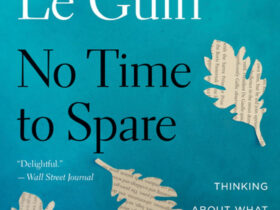“I worshipped dead men for their strength,
Forgetting I was strong.”
-Vita Sackville-West
For Christmas last year, I planned a bubble ball party for my nieces and nephews. I scheduled my ward building’s gym a month in advance. However, on the morning of the bubble ball party, I noticed that my event was no longer on the calendar. Luckily, there was nothing scheduled until 5:00 that evening.
After an extensive setup, twelve kids were screaming and bouncing and rolling around the gym when a group of men charged in, phones in hand, “What are you doing here?” The man in front demanded. I explained.
“Well, you are not on the calendar.”
“Yes, I know that. I did schedule the building, but it isn’t showing up anymore. I don’t know why.”
“I have the building every Monday, Wednesday, and Friday for men’s soccer.”
I looked around at the middle-aged men with soccer bags, pulling socks up their shins, changing shoes, and laughing together.
“Oh. I’m so sorry. This is just a once-a-year thing for my nieces and nephews,” I said as my nephew, inside a bubble ball, rolled past, screaming with joy.
“Well,” the stranger said with impatience, “You aren’t on the calendar.”
“You aren’t on the calendar, either,” I said.
“Well. I’m a bishop.”
“Oh,” I said, getting an idea, “do you have keys to the building across the street?”
“Yes, I do.”
“Great! Then you can go play soccer in that gym.”
“No. That gym is too small.”
“Oh,” I said, feeling like I was missing something. “Well, how about you and your friends play soccer on half the court and we will stay-”
“No,” he interrupted me, “We need the whole gym. And you aren’t on the calendar.”
Catherine in Jane Austen’s novel, Northanger Abbey, assumes people say what they mean and confusedly declares, “But why he should say one thing so positively, and mean another all the while, was most unaccountable! How were people, at that rate, to be understood?” (Northanger Abbey, 200). I felt like Catherine.
“But I’m a bishop.” He said again, with a laugh — like I understood what that had to do with commandeering the gym.
He said this thing so positively and meant another all the while and expected to be understood. He said, “I am a bishop” and “you are not on the calendar” but meant something else.
“I can’t be a bishop,” I said.
He walked away for a moment and returned with his phone, pointing to “men’s soccer” on the calendar from 12:30-2:00. “See, now I’m on the calendar.”
My nephews were returning to Nevada in just a few hours, I had planned this event for weeks, and I had eight massive bubble balls that were heavy and expensive. I refused to pack it all up because this man told me to, even if he had just added himself to the calendar, even if he was a bishop.
But once my sister saw that the bishop’s event was on the calendar, she started heaving the balls onto the stage and telling the kids to get up there, too. A few men started kicking a soccer ball around and the kids who realized they were being pushed aside, obediently rolled their blow-up balls to the stage.
I’m not sure how it happened, but I ended up on the stage, behind the curtains, with eight bubble balls that filled every inch of space, twelve restless children climbing around them, three women, and a table full of snacks while eight middle-aged men played soccer in the gym.

I felt like crying. I felt shame as I stood in front of the closed curtain, protecting the kids from falling off. I felt shame for allowing these children to be stuffed behind a curtain just because I was a woman.
“I am a bishop.” That phrase perplexed me because that is not what he meant. I often found camaraderie with Austen’s character Catherine; indeed, how are people to be understood when they don’t say what they mean? What he meant was, “I get what I want.” So step aside.
If he would just say that, all of us wouldn’t be so confused or accomodating.
It made me wonder how often bishops and men are pushed behind the curtain to wait until permission is granted to take the floor.
We let the kids run through the halls like a pack of wild wolves. We stayed on the stage for an hour and a half. The kids didn’t notice, they would enter the hidden stage every once in a while for snacks all sweaty and red-faced from their exhilarating excursions into the mysterious dark corridors and tunnels of the abandoned church building. But, actually, they probably did notice.
They probably noticed that a smaller pack of men forced the women and children to the sidelines. How could they not notice their aunts moving aside, staying hidden because the voice of a bishop said so? “Move aside, let the men take the gym.” I wish they would have just said it so the kids could see it clearly.
I felt pushed to my knees by a person who pretended it was where I belonged even though I knew it wasn’t . . . but I still allowed it. It is this silence, this normalizing of women’s obedience that scratches the insides of my skin like sandpaper.
Unfortunately, patriarchy constantly says one thing so positively and means another all the while. Step aside, it means, let the men give blessings, be witnesses, speak in conference, be ordained, fill ward councils and high priests and stake presidencies and bishoprics. Step aside, women. Let men bless your babies and baptize your children and write your rules and make God in their image. Stand aside women and sit in the pews and wait in the halls, wait for the men to call you and set you apart. Stand aside women, stand aside Heavenly Mother, stand aside Miriam and Huldah and Deborah and Anna. Wait to be ignored and told no and forgotten about. Stand aside, women, and learn how to quietly stand in your place on the side, behind the curtain.
I have learned to write under an alias. To think but not speak in ward councils. I have learned to pretend well that the system isn’t harmful. I have learned to see the good mixed in with corruption. I have learned to stand aside. To wait behind the curtain weak with shame.
I am so tired of seeing patriarchy and being invisible to it.





























Leave a Reply